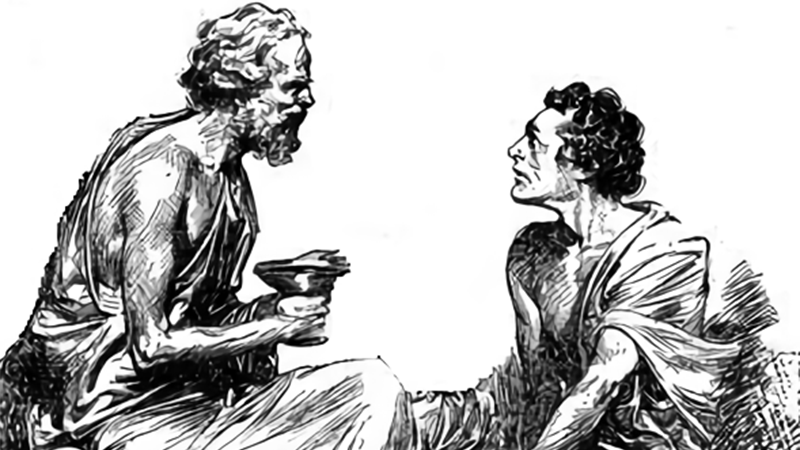Socrates was put to death by Athens for being a critical, questioning voice and for refusing to be silent. He argued that he would harm himself morally if he ceased to live the examined life.
Thus, sometimes others, or your society feel threatened by someone who questions the status quo, or what have been unquestioned beliefs. Socrates thought that even if others don’t like criticism or a questioning approach, you still have a moral duty to engage in critical examination. He argued it was more important to aim for what is truly just and to live rightly than to just go along with the status quo or with what your peers or fellow citizens believe. But, he also thought that your own beliefs ought to be subject to the same critical examination, and that this should take place in dialogue and in community.
